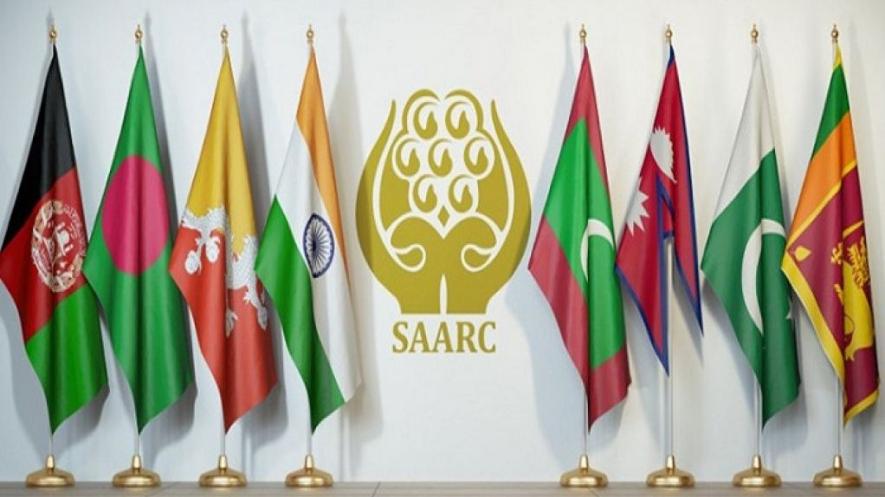India and Afghanistan: International Politics as Common Sense

Image credit: The Diplomatist
The recent developments in Afghanistan have rattled the experts. Yet, they are having a field day. Those who could not foresee the sudden victory of the Taliban until the last day have overnight become experts to predict what will happen to the hapless country.
Whatever happens to world politics, the tribe, which lives on conflicts, continues to thrive. Let me not go into the cliché about the military-industrial complex and talk about its inherent material interest in a conflict-ridden International system, a subject which is already over-researched.
What we tend to ignore is that behind the lofty theories of international relations is our simple common sense. But lest we forget, remember the golden maxim: common sense is the most uncommon thing in the world. Take the following test, and you will find the logic in this iconoclasm.
One. If America is a known international bully, which did not have any business to be in Afghanistan in the first place, why is it that now we criticise it for having left the place so comprehensively. One cannot argue for both in the same breath.
Two. Was not Pakistan looking for a ‘strategic depth’ by controlling the Afghan narrative from the day it lost East Pakistan in 1971 with the creation of Bangladesh? If so, why not should it celebrate the victory of its protégé, the Taliban, if the latter are calling the shots today? Why should it surprise anybody?
Three. Ever since 9/11 when America started behaving like the arbiter of Afghanistan’s destiny in coordination with Pakistan, India chose to keep off the military turf by concentrating on the country’s development projects alone. If so, how would it suddenly start mattering just because it happens to be the rotational chair of the UNSC now?
Four. India saw to it that SAARC became defunct when Pakistan was seen as a terrorism-sponsoring state following its Uri attacks in September 2016. Well, is not the same India now enthusiastically participating in the Shanghai Cooperation Organisation (SCO) in which Pakistan is not only an active member but is also the closest to the organisation’s lifeblood, China? Incidentally, both India and Pakistan joined the grouping on June 8, 2017, less than a year after the Uri incident.
Five. Ironically, the SCO may eventually do everything possible to recognise the Taliban government, which everyone will agree, managed to grab power simply by the exercise of its terrorist strategies (Afghanistan has an ‘Observer’ status at SCO). The doyen of India’s strategic studies, K. Subrahmanyam, used to argue that a terrorist group could be a veritable nuisance to the state, but it could not control state power. Subrahmanyam did not live long enough to see how his theory has failed.
Now coming to the common sense part, being an Indian, I cannot help but breathe Indian politics day in and day out through its ever-growing electronic, print and social media. Since one state election or another is happening every day, and since Prime Minister Narendra Modi is the mascot for BJP in every election, the connection between domestic politics and foreign policy has never been as pronounced as it is today.
When during the election campaigns, India’s Home Minister Amit Shah ridicules the real and imaginary infiltrators from Bangladesh as ‘termites’ who must summarily be exterminated, he weakens the secular forces in Bangladesh and makes the balancing job of Prime Minister Sheikh Hasina extremely difficult. If Shah has his domestic compulsions, so too has Hasina. Simple.
Now that the high-voltage Uttar Pradesh election is round the corner, the challenge for the Modi government is enormous. That is, how to balance between the electoral requirements of raising the bogey of Taliban to harvest the Hindu votes yet at the same time to play the role of an honest broker at the UNSC high table.
Since Narendra Modi is instinctively a domestic politics man, and India’s external affairs minister S. Jaishankar is instinctively a career diplomat, for whom the best advice to his political boss is one that the latter is willing to hear, common sense tells me that India is in for a difficult time in terms of regional security.
Please, for heaven’s sake, find a way out to revive the SAARC for it is still not too late. Also, let it not be forgotten that Afghanistan is a member of SAARC, not the SCO yet (it is still an ‘observer’). If politics is said to be local, let it be underlined that regional security is regional, not extra-regional, and far less global.
The author is Senior Fellow at the Institute of Social Sciences, New Delhi, and formerly ICSSR National Fellow and professor of South Asian Studies at JNU. The views are personal.
Get the latest reports & analysis with people's perspective on Protests, movements & deep analytical videos, discussions of the current affairs in your Telegram app. Subscribe to NewsClick's Telegram channel & get Real-Time updates on stories, as they get published on our website.
























